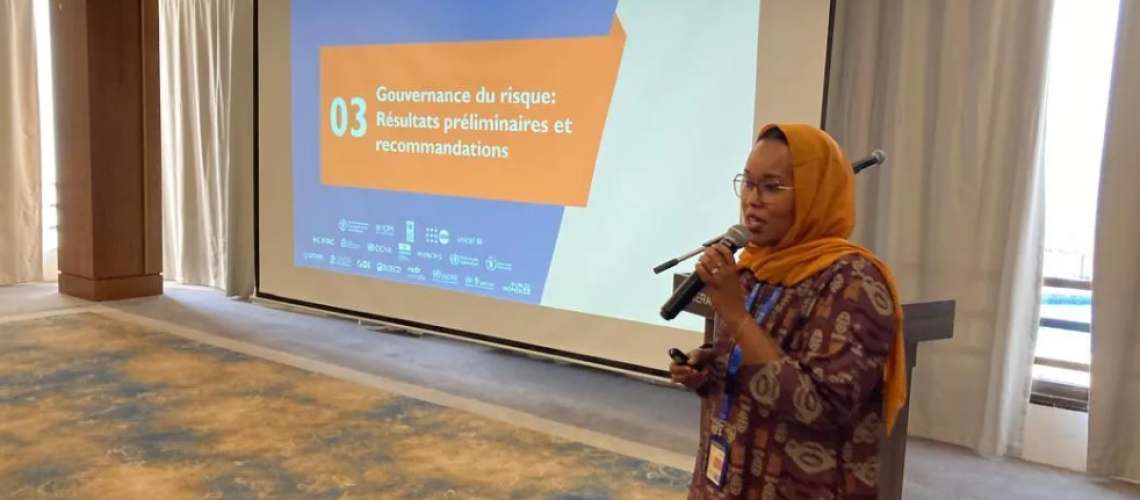
In Djibouti, resilience isn’t just a goal — it’s a necessity. And it’s already taking root.
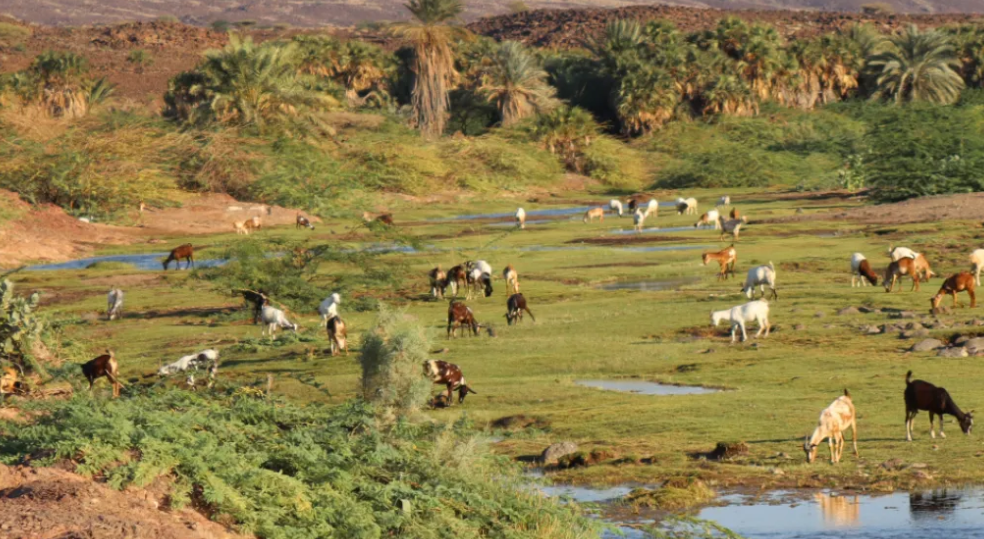
From erratic rainfall and droughts to emerging biological and technological hazards, the Republic of Djibouti faces a complex and shifting risk landscape, with climate-fuelled disasters a daily reality. Yet amid these challenges lies an opportunity: to build systems that protect lives, empower communities, and drive sustainable development.
Faced with growing climate risks, the Government of Djibouti has made disaster risk reduction a national priority. In 2022, the Government, through its Secrétariat Exécutif de la Gestion des Risques et des Catastrophes (SEGRC), sought support from the CADRI Partnership to strengthen its systems for disaster management. Fast forward to 2024, and that collaboration had evolved into a multi-agency mission on the ground, bringing together expertise from across the UN and government ministries to chart a path forward.
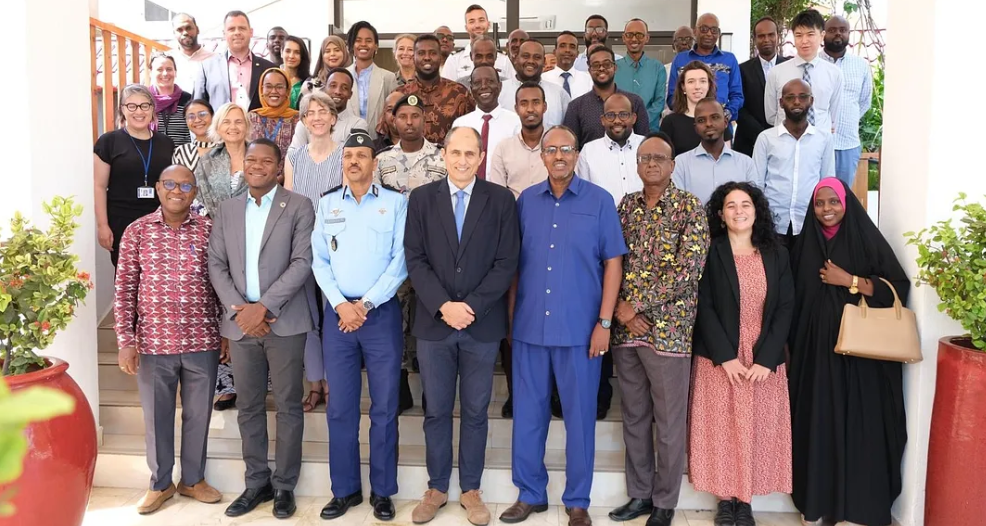
A country of contrasts and possibilities
In Djibouti, extremes coexist. In an arid climate where freshwater is scarce, flooding can still wreak havoc. Water is either desperately needed or dangerously abundant, with little in between.
Environmental pressures are mounting. Deforestation, desertification, and poor waste management degrading ecosystems and harming public health. Djibouti’s location along key human and animal migration routes further exposes it to biological and epidemic risks, as well as regional instability.
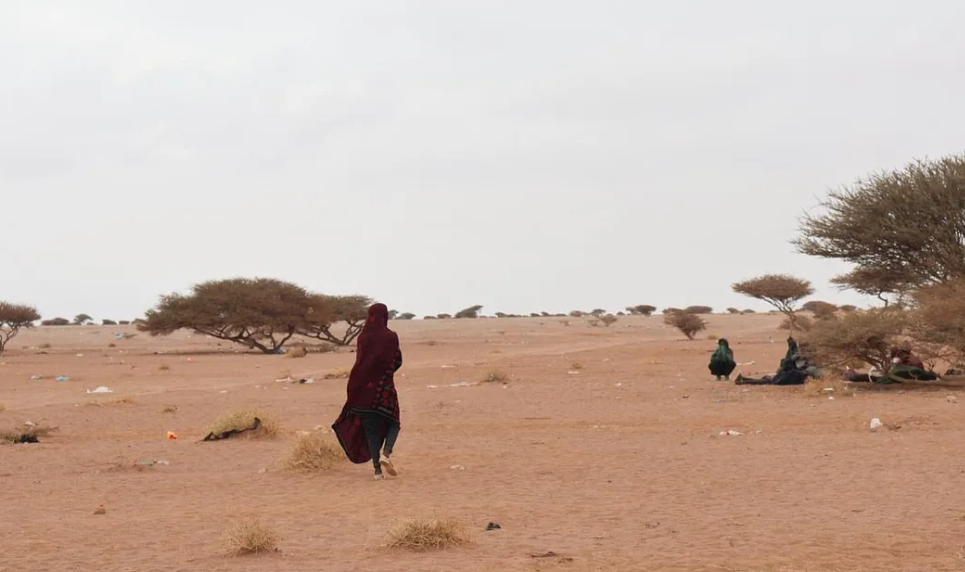
Vulnerability is widespread but uneven. Rapid urban growth and limited infrastructure leave many exposed to floods and disease. Women, refugees, and migrants often live in precarious conditions, with limited legal recognition that restricts their access to essential services and support.
But risk isn’t inevitable. With the right support, these challenges can be transformed into opportunities for inclusive and sustainable development.
Strong partnership in action
The May 2024 capacity diagnosis mission was a collaborative milestone. The mission was led by the Government of Djibouti, in close collaboration with the UN Country Team and Resident Coordinator’s Office and supported by the CADRI Partnership. It brought together local authorities and national ministries — including the Ministry of Interior, Ministry of Health, and Ministry of Environment — alongside UN agencies in Djibouti such as FAO, IOM, WHO, UNDP, UNDRR, UNHCR, UNICEF, and WFP. Local and national expertise was bolstered by regional and global expertise from IOM, FAO, UNOCHA, and UNDAC.

Together, experts carried out a detailed capacity assessment in Djibouti Ville and the regions of Tadjourah, Obock, Dikhil, Ali Sabieh, and Arta. With a focus on five priority sectors — WASH, food security and environment, infrastructure, human mobility, and health — consultations were held with 22 central institutions, 39 local institutions, 16 multi- and bilateral partners, and 3 civil society organizations. The mission culminated in a debriefing workshop, where preliminary findings and recommendations were shared and aligned with the goals of the Sendai Framework for Disaster Risk Reduction (2015–2030).
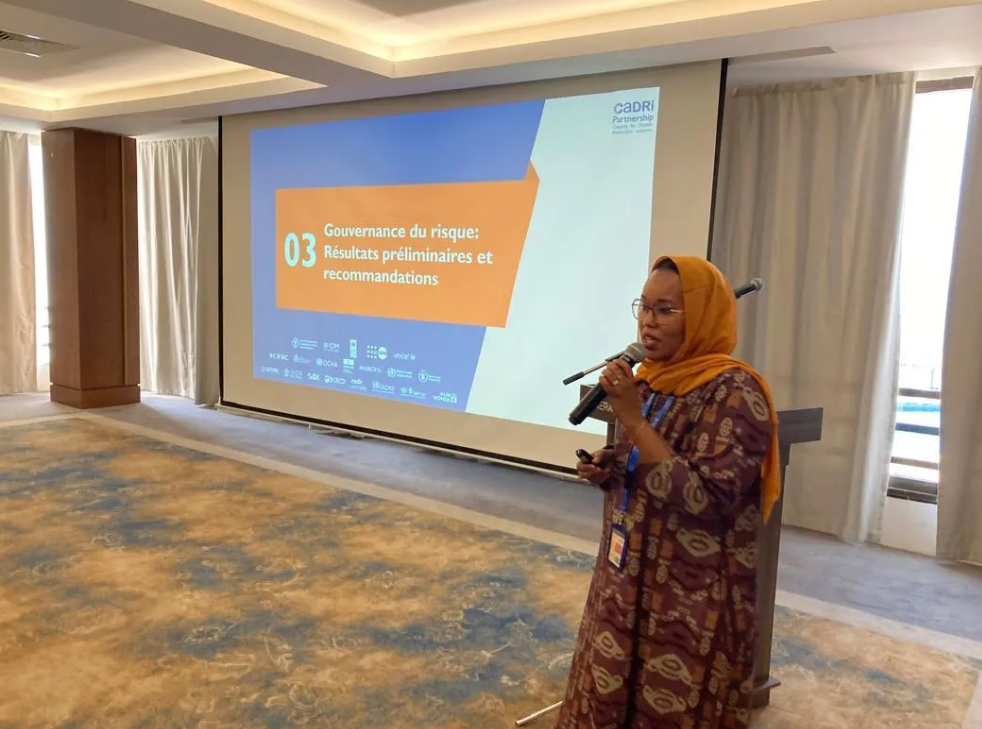
Risk data and governance: strengthening the foundations
Djibouti has laid the groundwork for risk data systems, with mechanisms led by institutions like the SERGC. Legal frameworks support information sharing, and political will is strong, backed by inter-ministerial and technical committees. However, the absence of a centralized management body and stable financing leaves the framework fragmented and underpowered. To fully realize its potential, gaps in funding, technical capacity, and coordination need to be addressed.
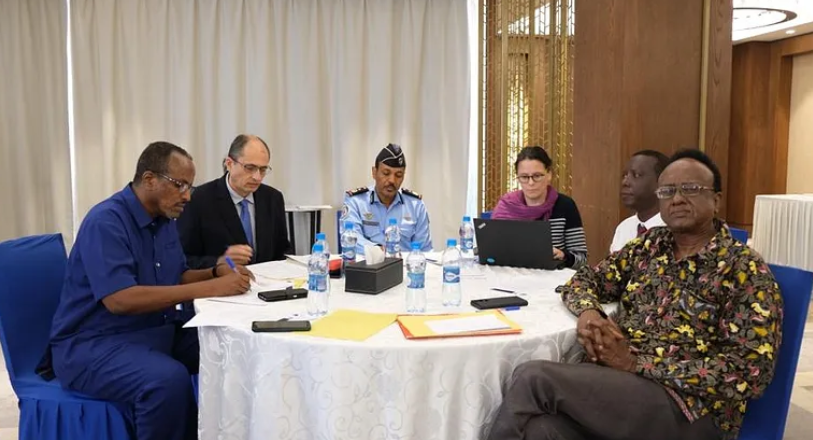
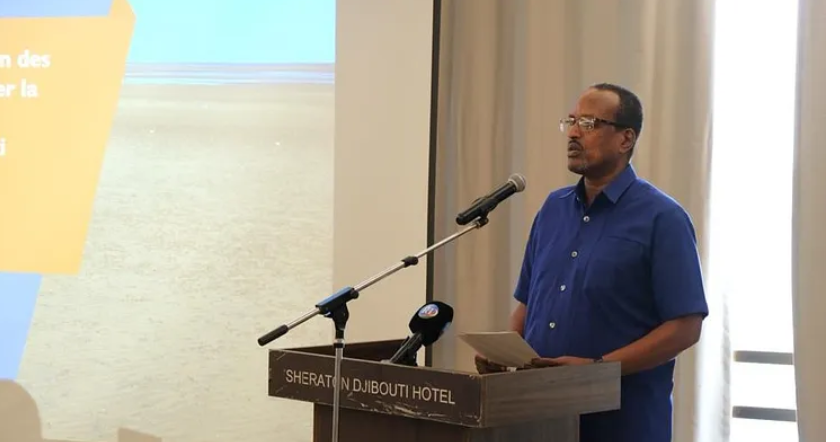
Food security: high stakes, fragile systems
Though agriculture plays a small role in GDP, it is vital for livelihoods and local resilience. Arid conditions and water scarcity leave the sector highly exposed to shocks. Ongoing efforts to boost local production show promise, yet food systems remain weakened by poverty, institutional gaps, climate impacts, and dependence on imports. Crucially, early warning capacities are undermined by weak data sharing. Strengthening those systems, reducing import reliance, and closing institutional gaps will help Djibouti build a more sustainable and shock-resistant food system.
Infrastructure and urban expansion: building resilience, unevenly
Resilience is increasingly integrated into Djibouti’s spatial planning, from earthquake-resistant standards to better resource management. However, weak enforcement, poor coordination, and decentralization challenges persist. Rapid urban expansion — particularly toward coastal areas — continues unchecked, stretching infrastructure and increasing exposure to risks. As cities grow, stronger enforcement, better coordination, and support to local authorities will be key to managing risk and reducing future vulnerabilities.
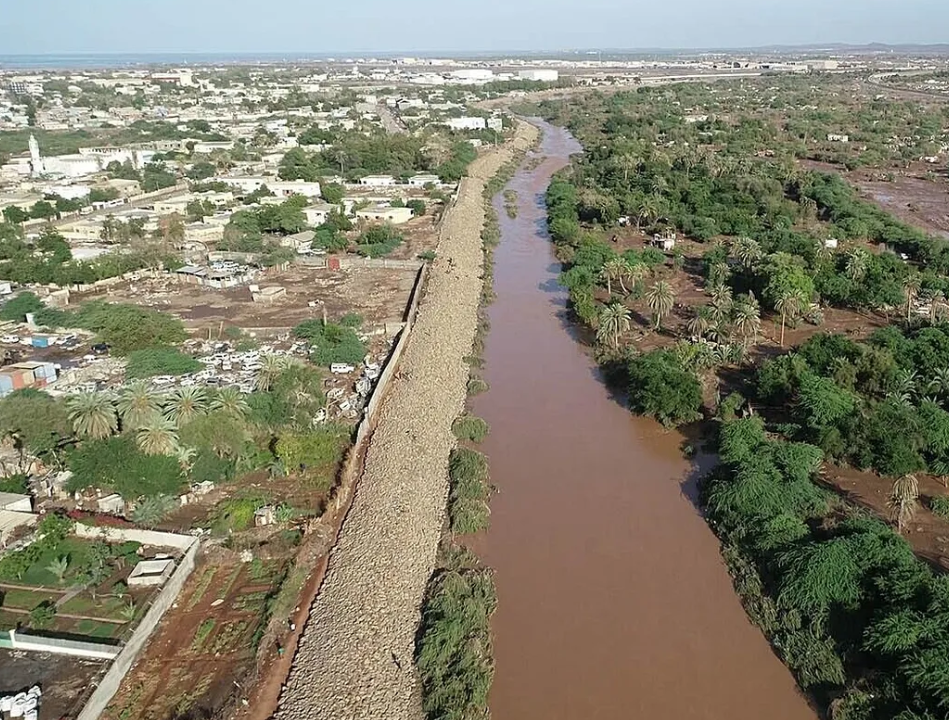
Health systems: structured but strained
Djibouti’s health system has a solid foundation with dedicated personnel and established structures, especially in the capital. However, limited emergency facilities, personnel shortages, and lack of a unified response strategy leave regional populations underserved and the system vulnerable during health crises. Strengthening coordination, expanding emergency capacity, and enhancing preparedness are essential to meet rising biological and epidemic risks and ensure more equitable care across the country.
Turning insight into action
Djibouti is not standing still. The CADRI mission’s findings and recommendations have already informed the country’s National Disaster Risk Reduction (DRR) Strategy and Action Plan — a critical step towards embedding resilience across sectors and systems. The CADRI capacity diagnosis report also serves as a strategic tool to guide Djibouti’s DRR policies, long-term resilience planning, and the implementation of the UN Sustainable Development Cooperation Framework (2025–2030).
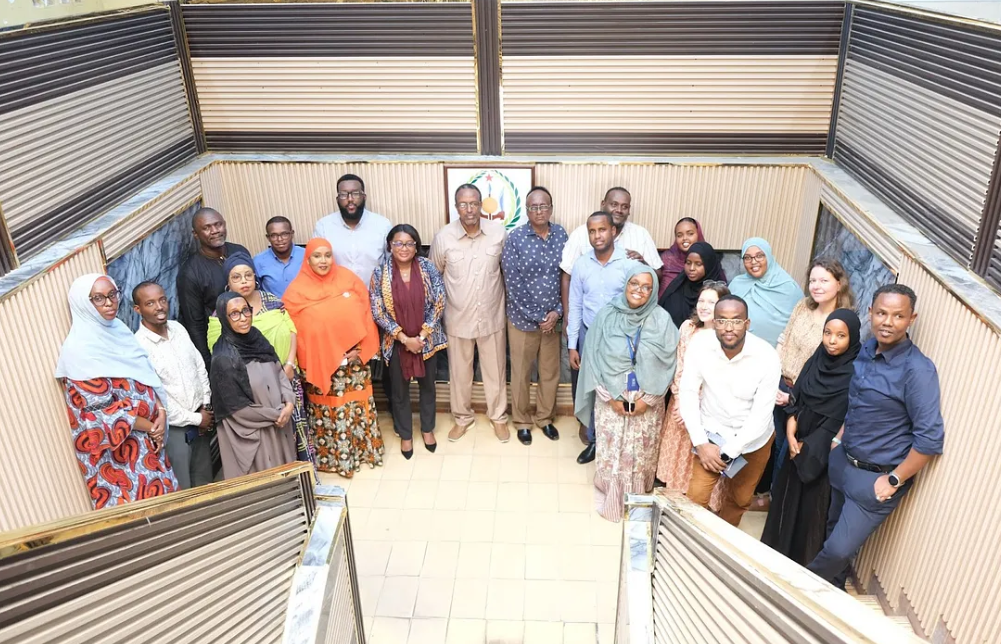
In June 2025, successive half-day workshops saw the endorsement of the CADRI Capacity Diagnosis Report and National DRR Strategy, with 24 technical experts from across government ministries and the UN Country Team working together to begin prioritizing CADRI recommendations. This will be followed by a political validation, tentatively scheduled for September 2025, after which the CADRI Report will be published and disseminated amongst key stakeholders and institutions.
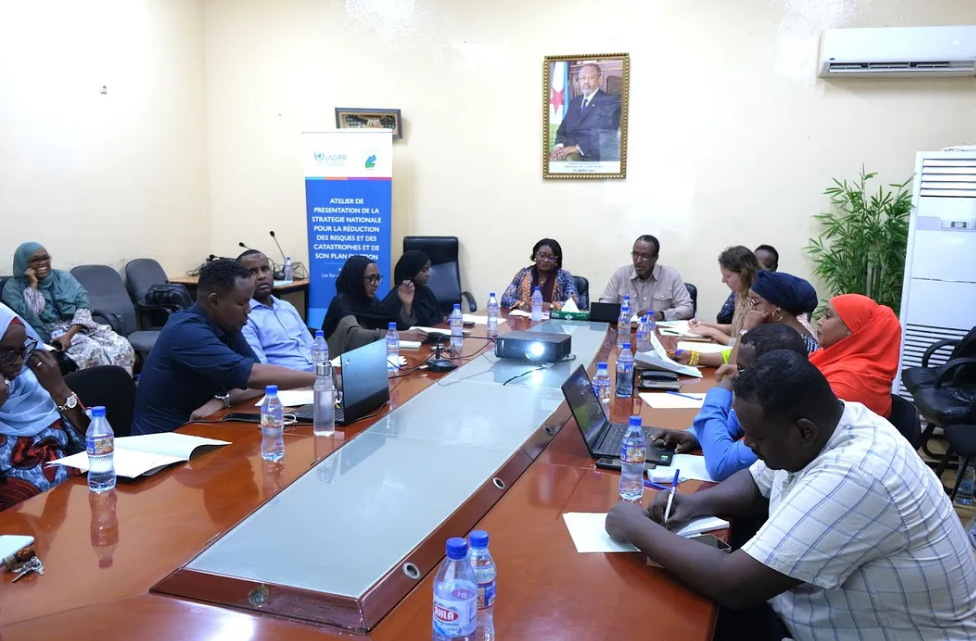
The road ahead focuses on operationalizing these recommendations, including clarifying institutional roles and coordination mechanisms, enhancing data sharing and risk communication, strengthening early warning systems, and securing sustainable financing for risk reduction.
Implementation will be driven by cross-sectoral collaboration and guided by a robust monitoring and evaluation framework that accompanies the National DRR Strategy. As Djibouti continues to confront climate and disaster risks, this roadmap offers a concrete opportunity to turn risk into resilience — through strengthened partnerships and sustained political will.
The call to action is clear: sustain the momentum, invest in national systems, and ensure that no one is left behind.
…
Story written by Myriel Mathez, Carlo-Schmid-Fellow at UNDP’s Disaster Risk Reduction and Recovery for Building Resilience Team.
The full Capacity Diagnosis Report and Policymakers Digest for Djibouti will be made available in French on cadri.net in late 2025.
